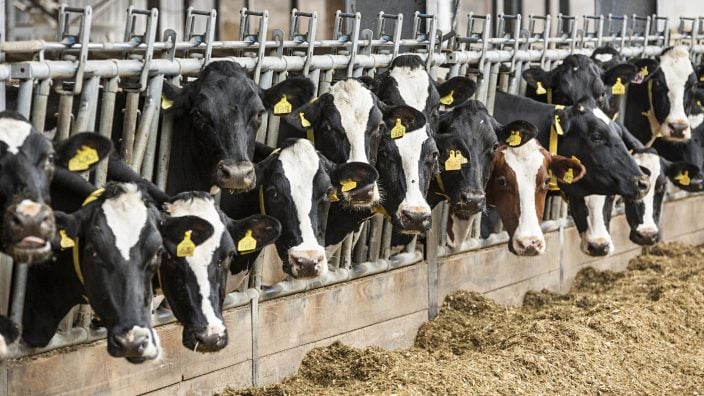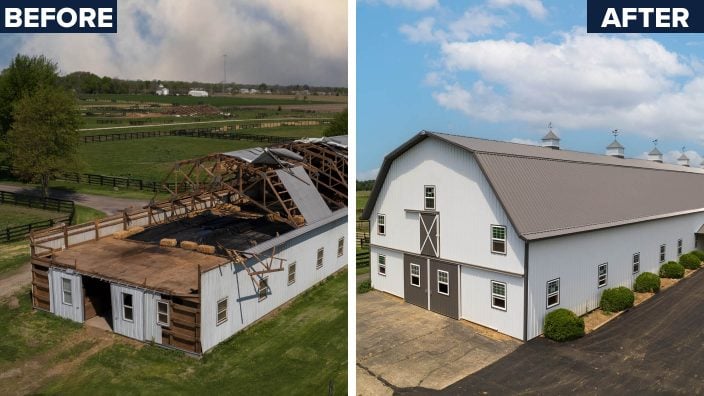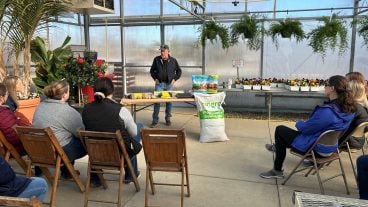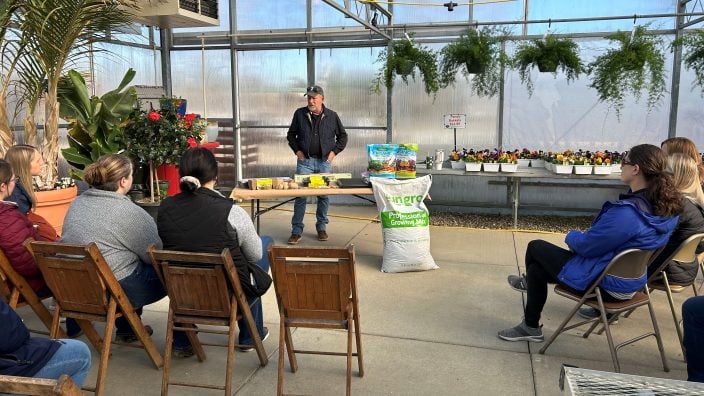Farmer’s Guide to Trucking Regulations available to Ohio Farm Bureau members
The guide includes a farm driver checklist, overview of state and federal regulations and exemptions, CDL qualifications and more.
Read More
UPDATE:
On June 11, the plaintiffs in the lawsuit asked the 9th Circuit U.S. Court of Appeals to overturn an EPA decision that would let farmers continue to use the herbicide in stock.
American Farm Bureau Federation, American Soybean Association, National Cotton Council of America, National Association of Wheat Growers, National Corn Growers Association, and National Sorghum Producers have filed an amicus brief supporting EPA’s position against the plaintiffs’ request that seeks to invalidate EPA’s dicamba existing stocks order and hold the agency in contempt, citing the catastrophic consequences that could result if the request is granted.
The grower coalition’s brief, filed June 16, makes a case for farmers caught in a highly frustrating and costly situation amid prime planting season and the narrow weed-control window: ‘Neither a midseason cancellation nor a vacatur unplants a seed, retroactively tills a field, or clears a storehouse of products purchased for lawful use under the prior registration.’
The groups argue that ‘Investments and planting decisions have been made, and most planting has been completed-all based on the realistic expectation that over-the-top application of these dicamba products would be possible through the growing season. The court should respect EPA’s expertise in managing existing stocks of these formerly registered pesticide products and deny the emergency motion pending against EPA.’
On June 19, the court agreed with the Farm Bureau, ruling the U.S. EPA’s existing stock order could stand, and allowing farmers the certainty that they can continue to use existing stocks of the three products through the end of June here in Ohio. The court has also asked for briefing on whether the Corteva (Dupont) Fexapan and BASF Engenia products should have been included in their original ruling to vacate registrations, signaling it may reconsider its order vacating the registration of those products as well.
PREVIOUSLY POSTED:
Shortly after the 9th Circuit Court of Appeals vacated the federal registration for three dicamba products: Bayer’s (formerly Monsanto) XtendiMax, Corteva’s (formerly DuPont) FeXapan and BASF’s Engenia, the EPA canceled its approval of the herbicides and released an existing stocks order, allowing farmers and pesticide applicators to use dicamba already in their possession until July 31. However, after further review of the label registration, the Ohio Department of Agriculture ruled that the final day farmers will be able to use the weed killer in the Buckeye State will come a month earlier, June 30.
In a statement, ODA said:
On June 3, 2020, the U.S. Court of Appeals for the Ninth Circuit rendered a decision which vacated the federal registrations of three of the four dicamba products that had previously been approved for use on dicamba-tolerant (DT) soybeans. This decision has caused tremendous uncertainty for soybean producers and pesticide dealers during an agronomically critical time of year. It is estimated that around 40 to 50% of the soybean crop planted in Ohio are dicamba-tolerant varieties. The specific products impacted are XtendiMax with VaporGrip Technology, Engenia Herbicide, and DuPont FeXapan with VaporGrip Technology. Tavium plus VaporGrip Technology for use on DT soybeans was not covered by this ruling.
In response to the decision, on June 8, 2020, the United States Environmental Protection Agency (US EPA) issued a Final Cancellation Order that outlines specific circumstances under which existing stocks of the three affected dicamba products can be used. The registration of these products in Ohio expires on June 30, 2020. After careful evaluation of the court’s ruling, US EPA’s Final Cancellation Order, and the Ohio Revised Code and Administrative Code, as of July 1, 2020 these products will no longer be registered or available for use in Ohio unless otherwise ordered by the courts.
While use of already purchased product is permitted in Ohio until June 30, 2020, the Court’s decision and US EPA’s order makes further distribution or sale illegal, except for ensuring proper disposal or return to the registrant. Application of existing stocks inconsistent with the previously approved labeling accompanying the product is prohibited. If you have questions about returning unused products, please reach out to your pesticide dealer’s representative.
For additional questions, please email [email protected] or call 614-728-6394, and visit ODA’s website for updates.
”Because dicamba is no longer a registered pesticide through EPA, there can’t be a renewal of that registration because that is a prerequisite to being registered under Ohio law,” said Leah Curtis, Ohio Farm Bureau’s policy counsel. “This is a similar situation to states like Indiana where dicamba can now only be used until June 20, and many other states already had restrictions in place for how late into June the product can be used.”
Sale or distribution of the products is also prohibited, except for the purposes of returning the product or legally disposing of it through July 31.
It is permissible for a certified applicator (including a farmer who is a certified applicator) personally to retrieve or pick up Xtendimax, Engenia, or FeXapan that is temporarily stored by a retailer, distributor, or cooperative for use consistent with the requirements of the label, if the certified applicator (including a farmer who is a certified applicator) purchased the product on or before June 3.
“Certainly if you own dicamba and it is in your barn, it can definitely be used before June 30,” Curtis said.
For the latest information about dicamba use in Ohio, listen to the latest Legal with Leah podcast and visit the Ohio Department of Agriculture’s website.


The guide includes a farm driver checklist, overview of state and federal regulations and exemptions, CDL qualifications and more.
Read More


Katie Share of Columbus has been named ExploreAg and Youth Development Specialist for Ohio Farm Bureau.
Read More

Mary Klopfenstein of Delphos has been named Young Ag Professional and Ag Literacy Program Specialist for Ohio Farm Bureau.
Read More

The plan has been updated to give sole proprietors access to more rate stability and a smart solution that offers potential savings on health care.
Read More

The American Farm Bureau Federation, in partnership with Farm Credit, is seeking entrepreneurs to apply online by June 15 for the 2025 Farm Bureau Ag Innovation Challenge.
Read More

Adele Flynn of Wellington has been elected treasurer of the Ohio Farm Bureau Federation and now holds the third highest elected office in Ohio’s largest and most influential farm organization.
Read More

Producers are urged to work with their veterinarian to practice enhanced biosecurity measures and review and limit cattle movements within production systems.
Read More

The changing seasons bring with them the need to thoroughly inspect pole barns for any damages that may have occurred during the winter months.
Read More

Hundreds of Ohio businesses and sole proprietors are raving about Ohio Farm Bureau’s Health Benefits plan with lower, predictable costs and easy enrollment and administration options.
Read More

AgriPOWER Class XIV spent a few days in March in Medina and Wayne counties learning more about northern Ohio agriculture from leaders in Ohio Farm Bureau.
Read More